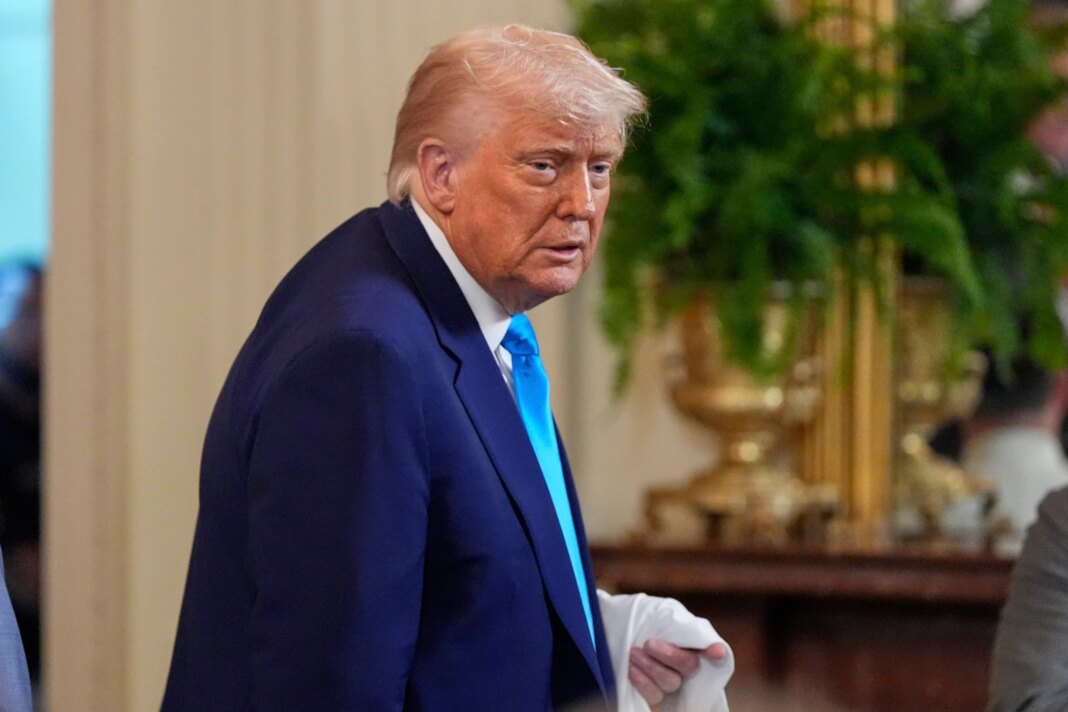Recent Pardons by President Trump: A Closer Look
Months after President Donald Trump began his second term, the political landscape in the United States has once again been embroiled in controversy following a fresh series of pardons linked to the January 6 riot at the U.S. Capitol. Trump’s administration has made headlines by issuing pardons for individuals previously convicted of crimes surrounding this infamous event. Among the latest beneficiaries of Trump’s clemency are Dan Wilson, a militia member with firearms-related convictions from Kentucky, and Suzanne Kaye, who threatened violence against FBI agents.
The Case of Dan Wilson
Dan Wilson, whose initial request for clemency was rejected by the District of Columbia, is a central figure in this latest round of pardons. The courts stated that Wilson’s existing pardon did not apply to the firearms-related offenses for which he was imprisoned. His charges were originally transferred to D.C. from Kentucky, leading to legal complications that culminated in a denial of his appeal in April.
But after persistent advocacy from U.S. pardon attorney Ed Martin, Wilson received a full pardon on November 14. The White House explained that Wilson’s firearm charges were tied to investigations related to January 6, thus justifying the pardon decision. Martin, underlining the significance of this clemency, expressed gratitude towards Trump on social media, celebrating Wilson’s newfound freedom.
Suzanne Kaye: A Controversial Threat
Suzanne Kaye’s case also reflects the contentious nature of these pardons. Sentenced to 18 months in prison for threatening to shoot FBI agents amidst an investigation into her actions on January 6, Kaye made headlines with her vehement social media posts. In one particularly alarming video, she stated she would resort to violence if agents approached her home.
Martin has been vocal in defending Kaye, blaming the current administration for what he termed the “weaponization” of the Department of Justice under President Biden. He argues that Trump’s decision to pardon Kaye is part of a broader agenda to rectify perceived injustices and promote healing in the aftermath of the January 6 events.
The White House’s Position
In an official statement provided to CNN, the White House articulated its reasoning for the recent pardons, emphasizing the nexus between the individuals’ actions and the Capitol riot. Trump’s administration contended that the pardons reflect an acknowledgment of the challenges posed by the investigations tied to January 6, reinforcing his administration’s support for those involved.
Public Reaction and Implications
The reaction to these pardons has been mixed. Supporters of Trump highlight this move as a demonstration of his commitment to his base and a stance against what they perceive as an overreach by federal authorities. Critics, however, view the pardons as potentially undermining the rule of law and sending a troubling message about accountability for actions linked to the Capitol riot.
As the political landscape continues to evolve, these actions position Trump firmly in the discourse surrounding the January 6 events and their aftermath. The implications of his pardons may extend beyond individual cases, potentially influencing future legal and political narratives as public sentiment shifts and the implications of these events are debated.
The Argument for Clemency
Supporters like Ed Martin argue that the recent pardons are essential for mending the divisions within America post-January 6. They contend that Trump is offering a path to redemption for those who have faced severe legal consequences for their actions during a tumultuous period in U.S. history. They frame these pardons not just as acts of mercy, but as necessary steps towards rebuilding a fractured political landscape.
In contrast, the opposition warns of the perils of granting leniency to those who have threatened government officials and engaged in violent rhetoric. The tensions surrounding these actions reflect a deeper fissure in American society about how justice should be meted out and what accountability truly means in a democracy.
Outlook
As the political implications of these pardons unfold, it remains to be seen how they will affect both Trump’s standing with his supporters and his critics alike. The narrative surrounding January 6, its consequences, and the paths chosen for accountability and healing is far from over. With more developments likely, the nation continues to grapple with the legacy of that day and the actions taken in its aftermath.



